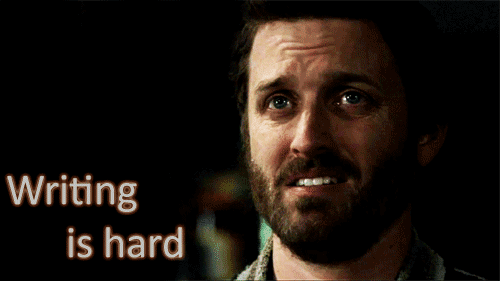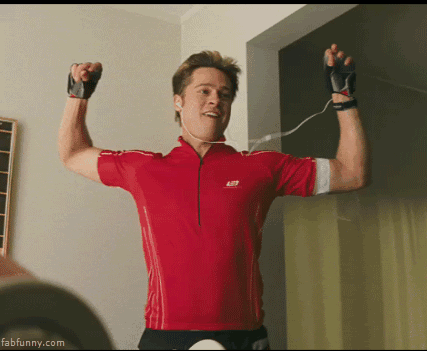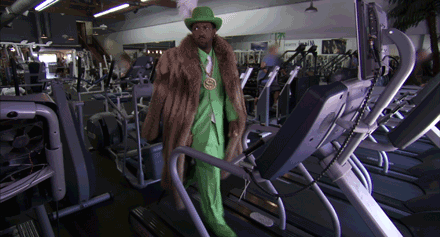Thursday, February 26, 2015
TBT: Taking Criticism Gracefully Can Make You a Better Writer
I recently blogged about how I tackle revisions to a MS. But a large part of surviving the crit process has to do with skin. As in thick skin. And having it. Because having thick skin is a necessity in the book biz. In fact, it’s a necessity in a lot of businesses.
I wrote today's TBT post back when I struggling to commit 100% to my Day Job. I wanted to throw myself into my writing and never turn back. But Handsome Jack and I needed money (and still do - you know, for bills and food and stuff). So I had to keep working. At first, keeping the Day Job felt like a waste of time. I could be learning and growing as a writer instead of toiling away as a paper pusher. To make my job more bearable I started looking for connections between my Day Job and my writing career. Essentially, I was looking for ways to grow as a writer while maintaining a traditional 9 to 5. What I found was there are many lessons we learn every day, just through everyday life, that can make us a better story teller and a better writing professional.
For today's TBT I'm sharing How The Day Job Can Make You A Better Writer: Taking Criticism.
Enjoy!
-----------------------------------------------------------------------------------------------------
Criticism is a valuable part of the writing-publication journey. In this business there is no end to criticism one receives and that's not necessarily a bad thing. Criticism makes us stronger and forces us to grow. Perhaps one of the most humbling and important lessons I learned was how to take criticism gracefully.
Listening to suggestions or negative feedback about your 80,000 word baby is hard. No - It’s FREAKING hard. But it’s essential to becoming a better writer.
This time of year at the Day Job (DJ) we are going through year-end reviews. A big formal way to receive criticism about your work. There are people who are better at this than others. Some bosses pack the year-end review with feedback you've never heard before. This type of criticism is a confidence grenade and can leave you in a million little pieces. Then there are the bosses who are totally upfront. You've heard from them all year about the things you need to work on and you know where you stand.
Luckily, with few recent exceptions, my DJ bosses have been in the latter group. I’m constantly receiving feedback about my work: Like when my boss tells me she hates how I handled the conference call, or my team tells me they think I could do a better job of communicating standards and goals, Or when my peers just flat out think I suck at my job. Receiving criticism can feel a lot like this:
Getting feedback isn’t enough. How you handle that feedback is what matters. That little elephant get's back up. So should you.
If you received difficult feedback at the DJ you would never dream of firing off an angry email to your boss telling them how wrong they are. Not if you expect to stay employed, anyway. When it comes to our DJ's we've learned to take criticism gracefully (even if that means going to an empty parking lot where no one from work can see you cry).
Experts at taking criticism gracefully seek the constructive in the negative. The goal is to learn from feedback (no matter how much the feedback hurts to hear).
In writing we have a ton of 'bosses' giving us constant feedback: Agents, Editors, CP's, and Readers. If we are going to grow we'll need to learn to turn criticism into improved craft.
I was reminded of this a few years ago when I won a crit for a super-awesome-famous-cooler-than-cool HarperTeen editor. I was thrilled and honored to have someone so knowledgeable reading my work.
The editor read my first 25 pages which included a prologue. (*cringes at use of prologue*) I know, I know. But I'd heard all the advice about 'hooking readers immediately' and 'opening with action' so I figured the best way to do that was with a prologue.
The HarperTeen editor said the prologue didn't work in my case. She agreed that it was action packed but stated the reader wouldn't give two flips about the characters or the action because they didn't know the characters. (I'm paraphrasing here because the super-awesome-famous-cooler-than-cool HarperTeen editor was professional, generous, nice and really sweet about the entire thing. The point is, the feedback, no matter how kind, can sting.)
By dropping the reader deep into the action without allowing them to invest in the characters my 'thrilling' scene was boring and tedious. The editor urged me to reconsider my opening and suggested I start with a normal day-in-the-life-of-the-MC. That way the reader could get to know my character.
I hated her idea. I was a little smug about it too (I'm ashamed to say). But I didn’t tell her that. I thanked the super-awesome-famous-cooler-than-cool HarperTeen editor and focused on all the feedback that really clicked with me.
I chewed on her feedback (aka criticism) for months. How am I supposed to hook my readers if the story opens with a normal boring day?
I ran through all the reasons why her idea was bad. Why my current opening was awesome. How I could never make her idea work in my narrative, yadda yadda yadda....until it hit me: the tiny pebble of truth (or in this case a giant boulder of truth). Her idea was AWESOME! It was just freaking hard and I didn't like that. Her idea challenged me and I didn't like that. It meant a huge rewrite of the first half of the book and I didn’t like that.
When I decided to try the editor's idea I was really pleased with the result. I even did a few happy dances:
Turns out it's possible to hook a reader even if the story opens with a 'normal' day.
It can take time to understand advice that, at first, seems like criticism. If you can master this you'll be successful at anything you set out to do. This is especially true in the wild world of writing where criticism is constant.
Good writers aren’t born, they're made. They train and work hard. They learn and grow. Take this time to thicken your skin and you'll be better for it. Just another way the DJ makes us better writers.
Have you learned to take criticism with grace? What helped you get a thicker skin? Share your stories here:
Want more on taking criticism? See Chuck’s ideas on getting the most out of a crit
Monday, February 23, 2015
What To Do With Feedback: Tackling Revisions #amediting
You’ve done it. You’ve written a book baby and sent it out into the wild, vicious world….or, in actuality, the open arms of your CP’s. Those wonderful, insightful, challenging CP’s who really want what’s best for you and your book baby.
And what do you get? Feedback. Hopefully buckets of it. Here’s the thing, not all of that feedback will be good.
In fact, if you are lucky, a lot of it will be difficult, hard-to-swallow, gut wrenching feedback.
Did she say lucky? About receiving difficult feedback?
Yeah, buddy. I sure did.
Positive feedback is great but it doesn’t help you grow. It’s the challenging feedback that makes us, and our books, better.
So what do you do with all that feedback? Every writer manages it differently. Here’s how I tackle revisions:
1. Read over all the notes in the MS in one sitting.
If you are receiving feedback in chunks (as in ch 1-6 one week and 7-10 the next, then read through all the notes in the chunk available).
2. Suppress all urges to defend your book baby. It’s natural for a momma bear to defend her cubs. It’s okay that you have that urge. But you need to suppress it to improve.
3. Separate positive feedback and put it aside. Positive feedback is the best. It feels good and makes you smile. ‘This person gets it,’ you think. ‘I am a genius, see, my CP gets me.’ Enjoy the feedback and then set it aside.
4. Consider storing positive feedback in it's own file. I like to store these self-esteem inflating nuggets of feedback in a separate word doc. Stuff that works. Put it aside and open it when you need a shot of confidence about your story or your writing skills.
5. Bucket ‘constructive’ feedback into two camps: Quick Fixes and Rewrites (I do this by color coding the notes. Easy stuff gets one color and rewrites get another.) Note: If the feedback isn't constructive at all (as in, is just shitty, then dismiss it.) I consider Quick Fixes to be any tense errors, missing words, necessary dialogue tags, copy/paste errors, etc. Rewrites, for me, are any questions digging into character motivation, suggested rewording, continuity errors, etc.
6. Tackle quick fixes fist. They're easy and completing these will feel good. Get them out of the way.
7. Take a break.Step away from the project and clear your mind.
This could be a day or a month. Whatever it takes to ensure you’re looking at the MS with fresh eyes.
8. Now tackle rewrites. I start by dividing rewrites into two buckets: rewrites I’m excited about and rewrites I’m not excited about (or don’t fully agree with - yet.) Why? Because rewrites are tough.
It’s hard to tear a story apart and stitch it back together again. It’s a bit like reconstructing Frankenstein’s monster from the inside out, with nothing more than a headlamp, a dull needle and some embroidery thread. So, if I’m going to dig into the monster and get dirty, I’m going to start with the rewrites that get me excited. Suggestions that totally make sense to me or the ‘OMG why didn’t I think of that’ ideas that really get my blood pumping. I work those items into my story first. Warning: This part of the revision can take time. Remember to be patient and kind to yourself during this process.
9. Next, I take a long, hard look at the stuff that didn’t resonate with me right off the bat and ask the following questions:
Why didn’t I like this idea?
If my answers are “it’s too hard,” or “they just didn’t get what I was trying to do” I mark those items as seriously need to reconsider. Just because a change is hard doesn't mean it would not be worthwhile.
How would this idea strengthen my plot? Seriously pause and consider this.
How would this idea strengthen my character? Again, seriously consider it.
10. What I’m usually left with after the question/answer reflection is a list of lots of tough rewrites. The didn’t-resonate-at-first-but-now-totally-makes-sense revisions are some of the hardest revisions, IMO. These rewrites sometimes require other, supporting rewrites. But by this time in my revision process I’m generally convinced they will make my story better and I’m actually excited about them. My blood is pumping. So I dig back into that rotting corpse that is Frankenstein’s monster - aka, the book baby - and start hacking and stitching until it’s done.
That’s it. That’s how I tackle rewrites.
It helps, I think, to remember your CP’s feedback is a precious gift. CP feedback is insight you cannot possibly have yourself because you are too close to the project. Treat their feedback with the respect it deserves. This means taking the time to truly consider it. Often we need to let the suggestions simmer in our brains before we can truly decide if it is right for our book or not. Revisions aren’t done overnight.
It’s not about what was ‘wrong’ with your book baby, rather, what can be done differently. Approach feedback as an opportunity and you might just find new skills, perspectives, or ideas you didn’t originally consider.
Sure, growth is hard. But it is necessary and, in the end, totally worth it.
What approach do you take to tackling rewrites?
Thursday, February 12, 2015
TBT: What I Love About Running
I'm happy to introduce a new feature on the blog: Throw Back Thursday featuring posts from my archives. You know, because sometimes there is a post I love so much I want to share it again. And sometimes the words I mash into sentences on this blog are relevant or thought provoking. Either way, throughout the year I will be dredging the archives for relevant posts and offering them up as TBT.
Today's post is special to me seeing as how my running season is over (sigh). I stumbled across this post (originally published in Oct 2008) while cleaning up some old (aka ancient) social media. It's simple and I really connected with the passion in it. So, today, for my first TBT, I want to share What I Love About Running:
---------------------------------------------------------------------------------------------------
Today I was running my first 10k and somewhere around mile 5 I started counting the top 10 reasons why I love running.
10. I don't have to look pretty. I don't have to wear makeup or have cute hair. I can just sweat it out.
9. I get to see new places. I love running races in new parts of town...site seeing is fun.
8. Meeting new people. There is always some nice old guy and some crazy ladies to chat with...today I ran with a 90 year old man for about half a mile...he was great.
7. Competition. I love the little triumphs running provides.
6. Measurable goals. I can set goals that are actually attainable...I don't need to be a track star to feel good about my accomplishments.
5. You can be gross if you want to be. I wont lie...I giggled when I had to spit around mile 4. Where else can you just spit with no apologies? lol!
4. Reconnecting with your body. The human body is so amazing and is capable of great things.
3. Time to think. I like having time to zone out and just let my mind adventure.
2. Running gives me an excuse to rawk out to crazy music. My running mix currently includes the William Tell Overture, some Luda, Flo Rida, and crazy hip hop from Japan. Yeah buddy. That's right.
1. Its hard. Didn't someone say that if something was easy it wasn't worth while? Or hard things are great? Either way, running is wonderful because when you push yourself you grow.
What do you love about running?
Monday, February 9, 2015
Fitbit: helpful friend or negative nancy?
I got a shiny new toy for Christmas this year: a Fitbit.
It’s actually surprising that I didn’t get on this bandwagon sooner. I’m typically all about fitness gadgets (I may or may not have two Garmin watches, a foot pod, a heart rate monitor, and other techy stuff affiliated with fitness). So, I was thrilled to get it as a gift (kudos to my hubby for the great gift idea).
I’ve been using the cute little Fitbit for a while now and wanted to share my thoughts:
1. It’s eye-opening: I’m a runner. I like working out. I like when my muscles are sore and I tend to look forward to workouts (not always, but generally). I’m technically overweight for my height but I’m happy with the way my clothes fit and my general strength (I can move my furniture myself, etc.). So all things considered I would call myself ‘fit’. Sure, I could lose weight and eat better (couldn’t we all) but I’m capable and strong.
When I started getting my Fitbit stats I was BLOWN AWAY by how little activity I did on non-gym days. On days I go to the gym (generally only three days a week) I hit 10,000 steps no prob.
But on days when I don’t go to the gym I am seriously sedentary. On non-gym days I average 2,000 – 3,000 steps. That’s it. That’s not great.
I decided to change my habits (take more steps on non-gym days) based on the information Fitbit provided. Now, I’m not beating myself up over it or running every single day (recurring injury prevents it). But I’m making a conscious decision to walk more and so far so good....like this guy:
2. Tracking sleep is harder than I imagined: One of the things that sparked my interest about the Fitbit was its ability to track sleep. I was pretty confident that I was getting 7-8 hours a night but how many minutes of that sleep was restless? Inquiring minds (well, my mind) want to know.
Here’s the thing, tracking sleep requires that you remember to turn ‘sleep mode’ on before you zonk out. At first I did this no prob. But as the weeks wore on I forgot more than I remembered. So now my sleep data is incomplete (which bums me out).
What data I did collect was interesting. I was actually getting far less sleep than I thought (think 5 – 6 hrs instead of 7-8). No wonder I was tired every day.
3. Getting badges (Fitbit awards for achieving goals) is actually fun: My little brother described it best when he said, “so it’s like your life is an RPG and the Fitbit tells you when you level up?” YEEEEEESSSSS.
It is just like that. I love getting badges for achievements. And I love when it vibrates to let me know I’ve hit my step goal for the day. It’s actually pretty fun to use.
4. The web interface is better than the mobile interface: This bums me out. You can do so much more (and see so much more) on the full ‘web’ version of the app versus the mobile version.
Here’s the rub, I pretty much only use the mobile interface on my phone. I rarely think to log into my Fitbit profile on my laptop. So it’s a bit discouraging to have limited capabilities on the mobile side of things. Maybe this will improve over time (or as I learn more about the mobile side of the app).
Overall, I really enjoy using Fitbit.
I like to think of the Fitbit as my fitness CP. Sometimes I don't like what my Fitbit has to say but most of the time its feedback is hugely empowering. Too often, I think we default into believing we are doing ‘enough’ to stay healthy.
I know I certainly fell into that boat. So having new information on my habits helped me make better decisions. And, so far, Fitbit has been fun to use and unobtrusive.
I would definitely recommend Fitbit to someone interested in better understanding their current habits or looking to make changes.
Monday, February 2, 2015
January 2015 Month in Review
Recapping my monthly progress serves two purposes: 1. it keeps me honest and accountable to my goals, and 2. it reminds me just how much work I’ve done over the last year. So let’s get down to it:
January has been a wild ride – not dissimilar from the good ol’ ride at Disney World: Mr. Toad’s Wild Ride (ah, I loved that one. Good thing the Winnie the Pooh ride is just as good ;)).
First and foremost, January brought vacation (woo hoo) and running (Dopey Challenge Achievement Unlocked).
We also spent time with family and friends at Disney.
January was basically kick @$$!
I loved our Disney trip and I had a blast running the races (check out my Walt Disney World 5k, 10k, Half Marathon, and Marathon recaps).
I also got to see both sets of my parents this month (my parents and my in-laws). I always feel super-charged after spending time with family.
Oh, an interesting side note, I finally went to see the eye doctor about my headaches. I had my vision surgically corrected (yay Lasik!) back in 2008 and had been vision-issue free since that time…until now. Turns out I need reading classes to keep me from over focusing. I am really excited about the idea (frames can be fun!) and hope that I can report fewer headaches as my eyes and brain adjust.
With all this going on it might be hard to believe that I got anything done this month – but I did. Here are the details for January 2015:
1 Amazing, Wonderful, Fun Walt Disney World Vacation
4 runDisney races (5k, 10k, 13.1, 26.2) completed!!
13 gym workouts (including elliptical/treadmill and personal training)
1 YA novel read “for fun”
2 law school prep books read for…eh…”fun?”
And on top of all of that I still had words. *does happy dance* This month’s grand total is 7,545 words. Which brings my total ‘tracked’ word count for 2015 to 7,545! Not too shabby. I feel like I’m off to a good start.
And as for miles, this month’s grand total is 74.3 miles, bringing my total ‘tracked’ mileage to 74.3 miles. I am making a bet that January’s mileage will be the highest recorded mileage this year (for me). It’s hard to top running a marathon AND a half marathon in the same month. And knowing my race schedule is going to be light this year (mostly 5k’s and 10k’s) I’m pretty confident this will be my best mileage month this year.
All in all, January was tremendous. I feel good about starting off 2015 with a bang. #NeverGiveUp #NeverSurrender
How are your goals coming along?
Subscribe to:
Posts (Atom)




































